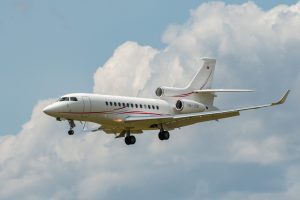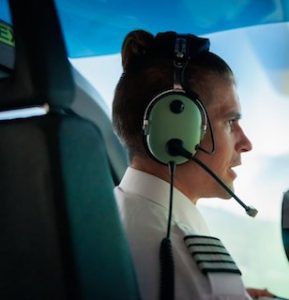Comprehensive Training Approach Of Laminar Courses
 The aviation industry demands highly skilled pilots who can manage the complexities of modern flight operations with precision and confidence. Laminar courses, known for their rigorous training modules, provide an exemplary framework for developing such expertise. This article delves into the comprehensive training approach of Laminar, focusing on Fixed Base Simulator (FBS) and Full Flight Simulator (FFS) sessions, and explores the key learning objectives in Crew Resource Management (CRM).
The aviation industry demands highly skilled pilots who can manage the complexities of modern flight operations with precision and confidence. Laminar courses, known for their rigorous training modules, provide an exemplary framework for developing such expertise. This article delves into the comprehensive training approach of Laminar, focusing on Fixed Base Simulator (FBS) and Full Flight Simulator (FFS) sessions, and explores the key learning objectives in Crew Resource Management (CRM).
1) Fixed Base Simulator (FBS) sessions
Fixed Base Simulator sessions are foundational to the Laminar training curriculum, designed to instill proficiency in normal and non-normal procedures as outlined in the Operations Manual. These sessions emphasise aircraft systems and Standard Operating Procedures (SOPs).
Structure of FBS sessions
The FBS sessions are meticulously structured to ensure thorough understanding and application of crucial flight procedures:
-
- Sessions 1-10: Each session comprises a 1-hour briefing, 2 hours of simulator training, and a 1-hour debriefing. Two crews are typically rostered together, participating in joint briefings and debriefings. The Pilot Flying (PF) and Pilot Monitoring (PM) roles are rotated to provide balanced exposure and experience.
- Sessions 11-12: These sessions involve more intensive training with a 1-hour briefing, 4 hours of simulator time, and a 1-hour debriefing.
During each session, both crews engage in a 4-hour simulator detail, ensuring comprehensive hands-on practice.
Key Learning Areas in FBS
-
- Aircraft systems: Pilots gain in-depth knowledge of the aircraft’s systems, understanding their functionalities, and troubleshooting techniques.
- Standard Operating Procedures (SOPs): Emphasis is placed on adhering to SOPs, which are critical for maintaining consistency and safety in operations.
2) Full Flight Simulator (FFS) sessions
Building on the foundation laid by the FBS sessions, Full Flight Simulator sessions focus on enhancing pilots’ handling skills while reinforcing the procedures learned previously.
Structure of FFS sessions
FFS sessions continue the practice-oriented approach of FBS but with added complexity. These sessions encompass:
-
- Normal procedures: Routine operations conducted under standard conditions.
- Supplementary procedures: Additional procedures that support normal operations.
- Non-normal procedures: Handling of irregular situations and emergencies.
Specific manoeuvres are practiced as hand-flown exercises to sharpen manual flying skills.
Assessment criteria in FFS
Students are rigorously assessed on various competencies critical for proficient flight operations:
-
- Application of procedures: Accurate execution of normal, supplementary, and non-normal procedures
- Communication: Effective interaction with crew members and air traffic control
- Flight path management – Automation: Proficient use of automated systems for flight path control
- Flight path management – Manual: Skilled manual control of the aircraft
- Knowledge: Comprehensive understanding of aircraft systems, procedures, and regulations
- Leadership and teamwork: Ability to lead and collaborate within the cockpit environment
- Problem solving and decision making: Efficient resolution of issues and making sound decisions
- Situational awareness: Maintaining awareness of the operational environment and potential hazards
- Workload management: Effective management of tasks and responsibilities to prevent overload.
CRM learning objectives
Crew Resource Management (CRM) is integral to the Laminar training philosophy, focusing on optimising human factors to enhance safety and efficiency in flight operations.
Key CRM learning objectives
-
- Active monitoring, monitoring, and intervention: Emphasis on vigilant monitoring and timely intervention to correct deviations
- Workload management: Strategies to manage and distribute tasks effectively, preventing cognitive overload
- Automation and philosophy on the use of automation: Understanding the appropriate use of automation and maintaining proficiency in manual operations
- Effective communication and coordination: Ensuring clear, concise, and assertive communication within the crew
- Stress and fatigue: Recognising and managing the impacts of stress and fatigue on performance
- Decision making: Developing robust decision-making skills, especially under pressure
- Information acquisition, processing, and situational awareness: Techniques for acquiring, processing, and maintaining situational awareness
- Leadership, cooperation, synergy, and delegation: Fostering leadership qualities, cooperation, and effective delegation within the team
- Threat and error management: Identifying, managing, and mitigating threats and errors to enhance safety.
Importance of CRM in pilot training
CRM training is crucial as it addresses the human factors that contribute significantly to aviation safety. By focusing on communication, teamwork, and decision-making, CRM training helps pilots operate more effectively, especially in complex and high-stress situations.
Laminar training methodology
The comprehensive training approach of Laminar, through its Fixed Base Simulator (FBS) and Full Flight Simulator (FFS) sessions, along with robust Crew Resource Management (CRM) objectives, sets a high standard in pilot training. These programs ensure that pilots are not only proficient in handling aircraft systems and procedures but also excel in critical areas such as communication, situational awareness, and decision-making.
By adhering to this structured training methodology, Laminar equips pilots with the skills and knowledge necessary to navigate the complexities of modern aviation. As the industry continues to evolve, such comprehensive training programs are essential in maintaining high safety standards and ensuring that pilots are well-prepared to meet the challenges of their profession.










